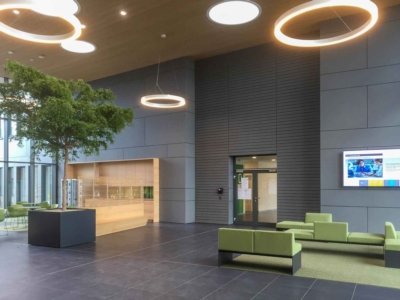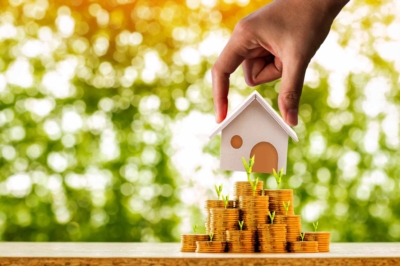




08 JANV. 2019 | PROPOSED BY OUR PARTNER ING LUXEMBOURG
An energy efficient home has many advantages: reduced energy bills, better heated fireplace and preserved environment. But there are also strong financial arguments for improving the energy efficiency of your home. You increase its resale value and can benefit from many grants and subsidies from the state.
The Energy Performance Certificate (EPC), or energy pass, is a quality label that defines the energy performance of a residential building. With this passport, you can assess the energy quality of a property and compare it with others. The energy performance certificates are valid for 10 years. They are established by architects or consulting engineers members of the Association of Architects and Consulting Engineers (OAI) and experts approved by the Minister of the Economy, and are mandatory in certain cases, especially during any new construction 1 , extension or change of tenant or owner.
An interested buyer or tenant must to be able to freely consult the energy performance certificate. In the same way, all sales and rental ads in the media must indicate the energy performance class.
PRIMe House: for improving energy performance
This energy performance is increasingly influencing the preferences of buyers and tenants. They focus more on features that can reduce the amount of their bills: double glazing, new and efficient boiler, insulation of the attic or hollow walls. These elements can make all the difference when choosing. Improving the energy performance of your home is therefore essential if you want to increase your chances of selling or renting quickly . Not to mention that many subsidies and state aids exist.
Among the most important are PRIMe House aids. These subsidies from the Environmental Administration are granted to you if you intend to improve the energy performance of your home. They concern, on the one hand, the sustainable energy improvement of a dwelling dating back more than 10 years (various insulation works, replacement of windows, controlled ventilation) and, on the other hand, the establishment of technical installations promoting renewable energy sources (solar thermal or photovoltaic installation, heat pump, wood boiler, heat network and / or connection to a heating network).
Climate loans with zero interest rates and reduced rates
Climate loans "KlimaPrêt" aim to promote the sustainable renovation of housing over 10 years through a pre-financing renovation . There are two loan formulas: the zero-rate climate loan and the reduced-rate climate loan.
The zero-rate climate loan is reserved for households that respect several socio-economic conditions. If you are eligible, you can benefit from the direct support, by the Ministry of Housing, fees related to the services of an energy advisor, prerequisite required for the granting of the loan. Your loan will be fully secured by the state to facilitate access to bank credit after one of the banks participating in the "KlimaPrêt" initiative. The main commercial banks in the country (including ING) are involved in this initiative. You will only have to repay the principal amount of the loan granted as long as it does not exceed 50,000 euros over a maximum of 15 years. The Ministry of Housing will also give you a single capital premium of up to 10% of the principal amount.
The reduced rate climate loan is for any owner of a dwelling over ten years old and located in Luxembourg. In this case, your loan will be limited to a principal amount of 100,000 euros per year over a period of 15 years. The State will grant you an interest subsidy of up to 1.5% and up to a maximum of 10% of the principal amount (ie up to EUR 10,000) 2 .
Other subsidies are available, such as the financial incentives for rainwater harvesting facilities, as well as the subsidy programs put in place by electricity and natural gas suppliers operating in Luxembourg.
Learn well before you embark on an expensive project, set priorities, keep in mind that the most innovative options are not always the most financially relevant, and do not hesitate to call on an energy advisor .
Find new expert advice Every Tuesday.
Every Tuesday.
1. From 1 January 2017, all new buildings must be a building whose energy consumption is almost zero (= NZEB Nearly Zero Energy Building) or Class AAA.
2. For more information on climate loans and PRIMe House aids, click here .